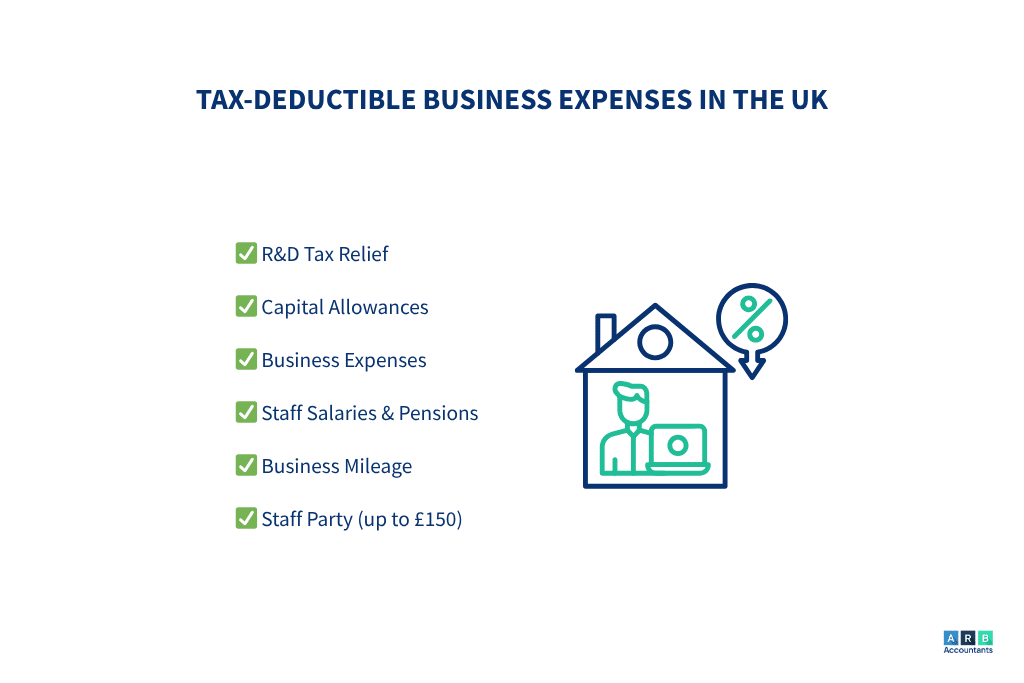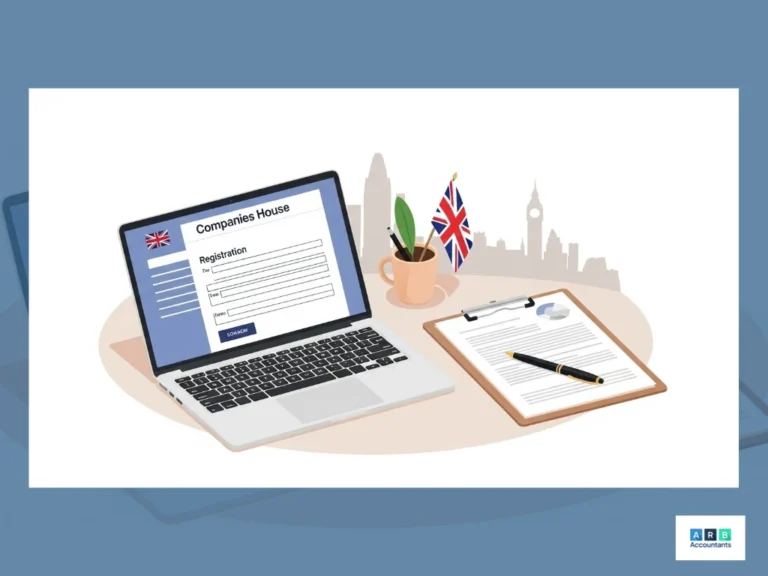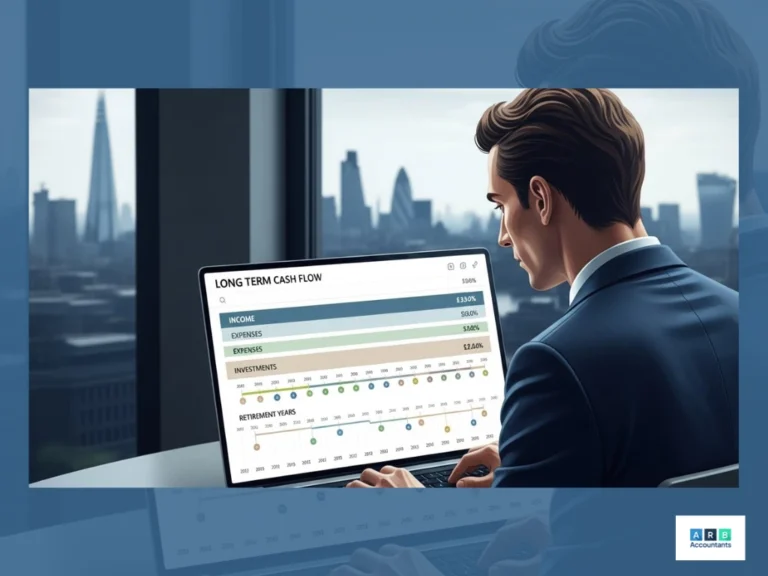
Do All Businesses Pay Corporation Tax?
Corporation tax is one of many taxes businesses face and is essentially income tax for companies. This article contains information about corporation tax – what it is and how you can plan and manage your tax returns.
So, do limited companies pay corporation tax? Only limited companies that are making profits are required to pay corporation tax in the UK. However, you will have to register for this tax within three months of starting to trade, regardless of whether you are forecasting profits or not.
Keep reading to find out how much corporate tax you’ll need to pay.
- What Type of Business Has To Pay Corporation Tax?
- Do Sole Traders Pay Corporation Tax?
- Corporation Tax for Small Businesses
- Corporate Tax Planning
- How Can I Reduce Corporation Tax?
- What Can I Offset Against Corporation Tax?
- How Much Tax Does a Business Pay in the UK?
- Hiring A Corporate Tax Accountant
- Corporation Tax Services In Southend and Essex
- Frequently Asked Questions
What Type of Business Has To Pay Corporation Tax?
Do limited companies pay corporation tax in the UK? Limited companies in the UK are required to pay corporation tax on profits. Therefore, once your business makes a profit, it must start paying corporation tax (unless it has previously incurred losses).
If your business is formed under an alternative structure—such as a sole trader or a community interest company—your tax responsibilities will be significantly different from that of a limited company by shares (LTD), and you may not be required to pay corporation tax.
Even if a company operates at a loss, do limited companies pay corporation tax? No, but losses can be carried forward to offset future profits.
Do Sole Traders Pay Corporation Tax?
Unlike limited companies, sole traders are taxed differently. Here’s a breakdown:
- Income Tax: Sole traders pay Income Tax on the profits from their business activities, not corporation tax. The rates are based on income brackets, with a personal allowance at the start of the tax year.
While sole traders pay corporation tax, they do not benefit from the same reliefs or tax rates as limited companies, which could raise the question: How much tax does a business pay in the UK? For sole traders, the tax burden primarily involves income tax and NICs rather than corporation tax.
READ RELATED ARTICLE: Why would you not claim capital allowances?
Corporation Tax for Small Businesses
Corporation tax for small businesses can be a little different from larger enterprises, especially in terms of tax rates and available reliefs. Here’s what small businesses should know:
Small Limited Companies: If a small business is structured as a limited company, it must pay corporation tax. The standard rate of corporation tax in the UK is 25% for profits over £250,000, while small businesses with profits below £50,000 pay a lower rate of 19%.
Many small businesses may also claim various allowances to reduce their overall tax liability. What taxes do businesses pay in the UK? Beyond corporation tax, businesses may also need to consider other taxes, such as VAT, payroll taxes, and employer NICs.
Corporate Tax Planning
Corporate tax planning involves taking steps that could potentially reduce your tax liability while improving your profitability. Corporate tax planning is not an effort to avoid taxes, as failure to do so can result in fines, sanctions, and even imprisonment.
Proper business forecasting requires planning for corporate taxes, which can help improve your bottom line. We have previously written a guide about the importance of business forecasting here.
How Can I Reduce Corporation Tax?
One easy way to ensure that you aren’t spending more than necessary is to file your tax return within the required deadlines. This helps qualify for tax relief and avoids late filing penalties. Increasingly, companies are seeking ways to reduce their corporation tax liabilities, and we can advise them on how to reduce their tax costs as much as possible. Since most people do not wish to pay more than they need to, we have outlined some basic strategies that can help offset your tax bill.

Excellent service, with knowledgeable advice always given. Questions answered promptly and tax returns filed in a timely fashion. I can recommend ARB accountants.
What Can I Offset Against Corporation Tax?

While the list is not exhaustive, and you should always check with your accountant, the following tips and strategies can be used to reduce your corporate tax liability:
R&D
When your business uses technical staff to solve complex problems, perhaps by developing new products, processes, or software, you could reduce your corporation tax by claiming Research & Development tax relief. The relief is as follows:
SME R&D relief allows companies to:
- deduct an extra 130% of their qualifying costs from their yearly profit, as well as the normal 100% deduction, to make a total 230% deduction
- claim a tax credit if the company is loss making, worth up to 14.5% of the surrenderable loss
You can claim directly against R&D spending and also the wages that you pay to technical staff, making the R&D tax relief system one of the most generous business reliefs of its kind.
Capital Allowances on Property
You can claim capital allowances when you buy assets that you keep to use in your business, and this applies to property too. If you spent any money on new commercial property, you are entitled to claim a 3% straight-line writing down on the qualifying costs. Recently purchased a swanky brand new office? The 3% relief can quickly start to add up…
Business Expenses
It may sound obvious, but if you fail to document all of your business expenses throughout the year then your reported profit will be overinflated. As such, your company may be subjected to more tax than should be the case. So, make sure that you keep on top of your receipts!
Business Mileage
An employee who uses their personal car to conduct business can claim expenses tax-free from the company, using statutory rates per mile of 45 per mile (up to the first 10,000 miles), and 25p (thereafter). The company’s reimbursement to employees will be accounted for under expenses, and thus reduce profits and the resulting tax liability.
Directors Salaries
As a business owner, you should take steps to keep the use of your personal allowances as effective as possible by combining dividends and salary in a tax-efficient way. If you are unsure about what the most appropriate compensation package is for you as a business owner, our tax advisory services can help you pick a structure that makes sense for your business.
Share Schemes
It is also possible for companies to obtain a corporation tax deduction when they offer employee share options. Providing your employees with share options can be an effective method of motivating and rewarding employees. Considering the wide range of schemes available, advice is crucial to ensure you choose the right one for your business.
Pension Contributions
It is usually possible for companies to deduct pension contributions paid into pension schemes on behalf of their employees or directors from their profits. In order to qualify for relief, you must make payments before the end of the accounting period. This is a straightforward way of reducing corporation tax, although personal tax status should also be taken into consideration before making contributions.
Investment in Plant and Machinery
Purchasing certain business assets, such as new machinery, can result in immediate tax relief through the “Annual Investment Allowance” (AIA), which companies can claim up to a specified limit. The AIA was increased to £1m on 1 January 2019, which means businesses that invest in qualified items are able to write off a significant amount of the investment against their profits.
The Staff Party
A slightly more jovial tax relief – you can offset the cost of your annual staff party. Up to £150 per head (including VAT) in expenses for an annual staff party (such as the staff Christmas party) can be tax-free for the employees and tax-deductible for the employer. Not only does this reduce your corporation tax liabilities, but also is a great way to reward your employees for their service.
READ RELATED ARTICLE: What can a director’s loan be used for?
How Much Tax Does a Business Pay in the UK?
When considering the overall tax burden for businesses, how much tax does a business pay in the UK? Depends largely on the type of business and its income level.
Businesses also need to consider other taxes beyond corporation tax, including:
- Value Added Tax (VAT): Businesses earning over a certain threshold must charge VAT on their products or services.
- Payroll Taxes: If a business employs staff, it must also handle payroll taxes like PAYE and National Insurance contributions for employees.
The total tax burden on any business will depend on its legal structure, revenue, and how it manages its finances throughout the year.
Hiring A Corporate Tax Accountant
Although limited companies are not legally obligated to use an accountant, there are many benefits of doing so, including completing your annual accounts and filing your company tax returns. If you are still on the fence, we wrote a blog about the benefits of hiring an accountant and what they can bring to your business.
Corporation Tax Services In Southend and Essex
If you think that you might like to enquire about hiring an accountant to help you then look no further than ARB Accountants. Our fixed fee accountancy services for limited companies ensures that no matter how complex your business operations, we’ll keep your records in order, and maximise your business’s potential.
If you have any questions, please don’t hesitate to contact us here, and we’ll be more than happy to discuss your particular needs and circumstances. We also provide a free 60 minute consultation for directors looking for advice on their company’s accountancy needs. You can book your appointment here.






